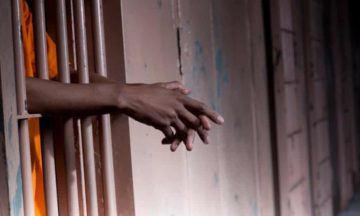Colin Grant in The Guardian:
 In 2008, months before his election as president, Barack Obama assailed feckless black fathers who had reneged on responsibilities that ought not “to end at conception”. Where had all the black fathers gone, Obama wondered. In The New Jim Crow, Michelle Alexander has a simple answer to their whereabouts: they’ve gone to jail. Her clear-eyed assessment, published in the UK almost a decade after it first stunned America, is an indictment of a society that, since the 1980s, has been complicit in the explosion of its prison population from around 300,000 to more than 2 million. Drug convictions have largely fuelled the increase, and an extraordinary number of those new felons have been black. This is not coincidental. The Reagan administration’s “war on drugs” shifted the legal goalposts, Alexander asserts, so that mass incarceration “emerged as a stunningly comprehensive and well-designed system of racialised social control that functions in a manner strikingly similar to Jim Crow”.
In 2008, months before his election as president, Barack Obama assailed feckless black fathers who had reneged on responsibilities that ought not “to end at conception”. Where had all the black fathers gone, Obama wondered. In The New Jim Crow, Michelle Alexander has a simple answer to their whereabouts: they’ve gone to jail. Her clear-eyed assessment, published in the UK almost a decade after it first stunned America, is an indictment of a society that, since the 1980s, has been complicit in the explosion of its prison population from around 300,000 to more than 2 million. Drug convictions have largely fuelled the increase, and an extraordinary number of those new felons have been black. This is not coincidental. The Reagan administration’s “war on drugs” shifted the legal goalposts, Alexander asserts, so that mass incarceration “emerged as a stunningly comprehensive and well-designed system of racialised social control that functions in a manner strikingly similar to Jim Crow”.
In the years following the civil war southern legislators designed “Jim Crow” laws to thwart the newly emancipated black population, notably curbing voting rights. Under the laws, black people also, increasingly, found themselves “relegated to convict leasing camps that were, in many ways, worse than slavery”. If Jim Crow was an effective means of controlling the black population, then modern mass incarceration, Alexander argues, is its successor. The figures are extraordinary. A decade ago in Chicago, for instance, 55% of the adult black male population had a felony record. In quiet yet forceful writing Alexander, a legal scholar, outlines how the Reagan government exploited 1980s hysteria over crack cocaine to demonise the black population so that “black” and “crime” became interchangeable. It was a war – not on drugs – but on black people. While churchgoing mothers in the ghetto might want politicians to be tough on crime, they don’t want to see their sons routinely arrested (suspected of being drug dealers for wearing baggy trousers).
More here. (Throughout February, at least one post will be dedicated to honoring Black History Month. The theme this year is: The Family)
